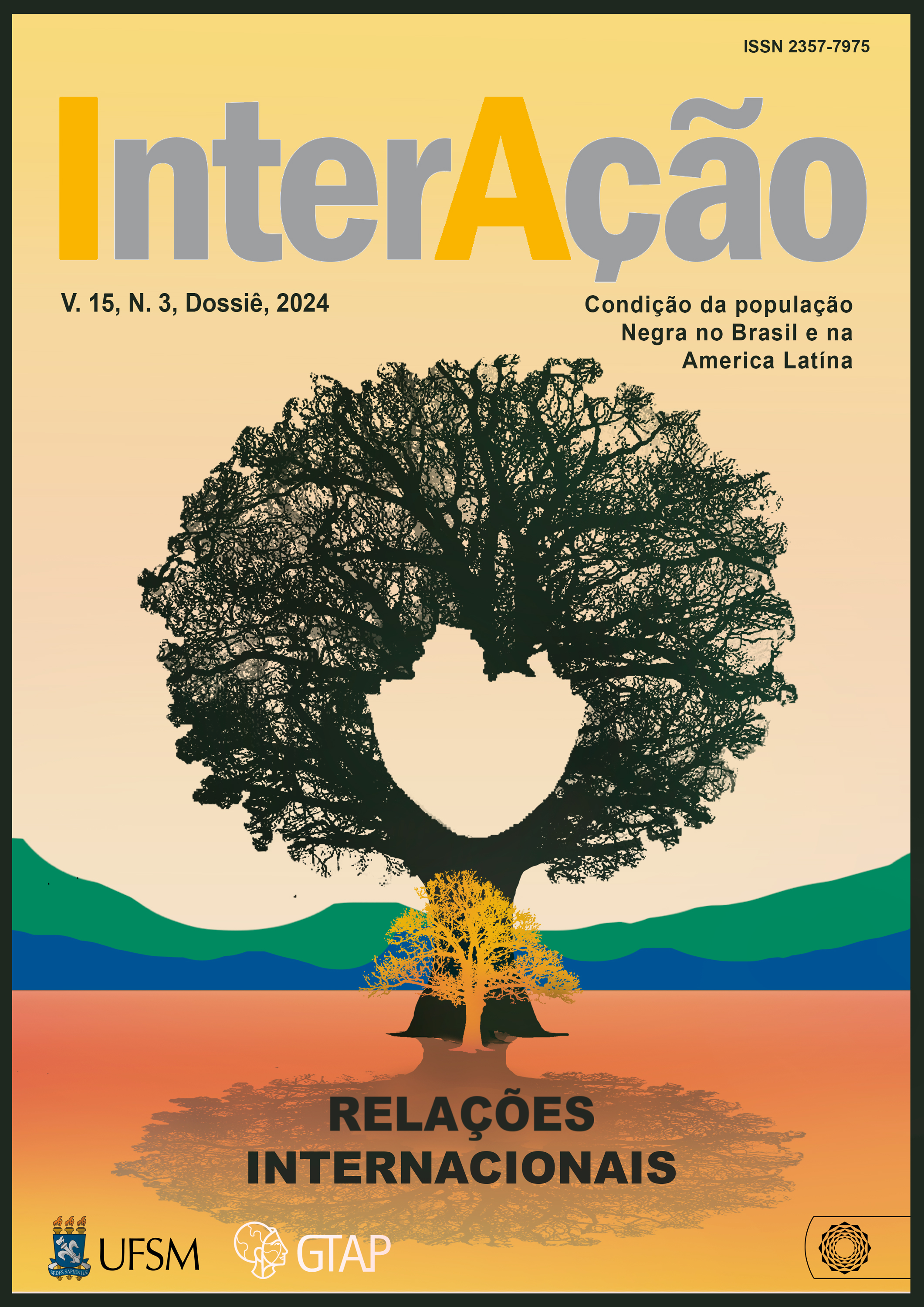Black women in university teaching: insurgency and transgression
Keywords:
Black teachers, Sexism, Institutional Racism, Transgression, University educationAbstract
This article is part of doctoral research, which has already been completed. The objective of the investigation was to carry out an analytical mapping of the academic trajectories of black teachers who work in undergraduate courses at the Universidade Federal Fluminense (UFF). Objectively, a search was systematized to correlate the performance dynamics of social markers, gender, race and class, guided by the theoretical framework of intersectionality, considering that such categories operate intertwined and in variable and distinct intensities. We sought to investigate the way in which such categories are evident in the academic trajectories of the teachers who participated in this production and what vicissitudes they faced. It is worth highlighting that regarding the class category, it is nec-essary to avoid establishing a hierarchical view that often centralizes it and secondaryizes other categories. The research methodologies used were qualitative and quantitative. When accessing the teaching staff database, made available by UFF, the gender and race categories reported in each course made quantitative analysis possible. Emphasizing the complementary nature of quantitative/qualitative methodologies, the analysis of the aca-demic trajectories of black teachers was made possible by the use of a questionnaire and from this, a comparison was made with the lattes curriculum of each teacher. In this study, despite pointing out the advances made by black teachers in a federal higher education institution, it also reveals the multiple manifestations in which racism, machismo, sexism and classism operate intertwined in the academic trajectories of teachers who participated in this research.
Downloads
References
BRASIL, Lei 13. 709 de 14 de agosto de 2018. Art 1ºEsta Lei dispõe sobre o tratamento de dados pessoais, inclusive nos meios digitais, por pessoa natural ou por pessoa jurídica de direito público ou privado, com o objetivo de proteger os direitos fundamentais de liberdade e de privacidade e o livre desenvolvimento da personalidade da pessoa natural.
CARONE, Iray; BENTO, Maria Aparecida Silva (Orgs.). Branquitude - o lado oculto do discurso sobre o negro. In: Psicologia social do racismo – estudos sobre branquitude e branqueamento no Brasil. Petrópolis, RJ: Vozes, 2002, p. 147-162.
COLLINS, Patricia Hill. Pensamento Feminista Negro. São Paulo: Boitempo, 2019, p. 493.
COLLINS, Patricia Hill. Aprendendo com a outsider within: a significação sociológica do pensamento feminista negro. Revista Sociedade e Estado, v. 31, n. 1, p. 99-127, 2016.
COLLINS, Patricia Hill. Se perdeu na tradução? Feminismo negro, interseccionalidadee política emancipatória. Parágrafo, v. 5, n. 1, p. 7-17, Jan/Jun. 2017. ISSN: 2317-4919.
COLLINS, Patricia Hill. Intersections of race, class, gender, and nation: some implications for black family studies. Journal of Comparative Family Studies, v. 29, n. 1, p. 27-34, 1998.
COLLINS, Patricia Hill. Learning from the Outsider Within: the Sociological Significance of Black Feminist Thought. Social Problems, v. 33, n. 6, p. 14-32, oct./dec. 1986.
DISCOVERY Channel A origem do homem. Disponível em: https://www.youtube.com/watch?v=w8Pp6KmIMu0. Acesso em: 14 maio 2023.
FREYRE, Gilberto. Casa-grande e senzala: Formação da família brasileira sob o regime da economia patriarcal. Recife-PE: Global, 1933, p. 375.
GONZALEZ, Lélia; HASENBALG, Carlos. Lugar de negro. Rio de Janeiro: Marco Zero, 1982, p.60. (Coleção 2 Pontos).
GONZALEZ, Lélia. Racismo e sexismo na cultura brasileira. Revista Ciências Sociais hoje, p. 223-244, 1984.
GONZALEZ, Lélia. Primavera para as rosas negras: Lélia Gonzalez em primeira pessoa. 1. ed. Diáspora Africana: Editora Filhos da África, 2018. 476 p.
HOFBAUER, Andreas. Raça, cultura e identidade e o “racismo à brasileira”. In: BARBOSA, Lúcia Maria de Assunção (Org.). De preto a afro-descendente: trajetos de pesquisa sobre o negro, cultura negra e relações étnico-raciais no Brasil. São Carlos-SP: EdUFSCar, 2010.
MUNANGA, Kabengele. Programa de educação sobre o negro na sociedade brasileira – Uma abordagem conceitual das noções de raça, racismo, identidade e etnia. Niterói-RJ: EdUFF, 2004. p. 131.
MUNANGA, Kabengele. Negritude: usos e sentidos. Coleção Cultura Negra e Identidades, 2009. p.40.
PIZA, Edith. Porta de vidro: entrada para branquitude. In: CARONE, Iray; BENTO, Maria Aparecida da Silva (Orgs.). Psicologia social do racismo: estudos sobre branquitude e branqueamento no Brasil. Rio de Janeiro: Vozes, 2002.
PENA, Sérgio Danilo J, BORTOLINI, Maria Cátira. Pode a genética definir quem deve se beneficiar das cotas universitárias e demais ações afirmativas? Estudos. Av.vol 18 n.50 São Paulo Jan./Apr.2004. Disponível em: http://dx.doi.org/10.1590/S0103-40142004000100004. Acesso em: 14 maio 2023.
SALDANHA, 2019. Disponível em: https://www1.folha.uol.com.br/educacao/2019/09/4-em-cada-10-jovens-negros-nao-terminaram-o-ensino-medio.shtml. Acesso em: 11 jan. 2020.
SEYFERTH, Giralda. Raça, mestiçagem e nação no Brasil. In. OLIVEIRA, Iolanda, PESSANHA, Márcia Maria de Jesus(orgs.) Educação e relações raciais.v. 1. Niterói: EdUFF, 2016. P. 21 – 64.s
SOUZA, Neuza Santos. Tornar-se negro ou As Vicissitudes da Identidade do Negro Brasileiro em Ascensão Social. Rio de Janeiro: Graal, 1983, p. 88.
Downloads
Published
How to Cite
Issue
Section
License

This work is licensed under a Creative Commons Attribution-NonCommercial-ShareAlike 4.0 International License.







